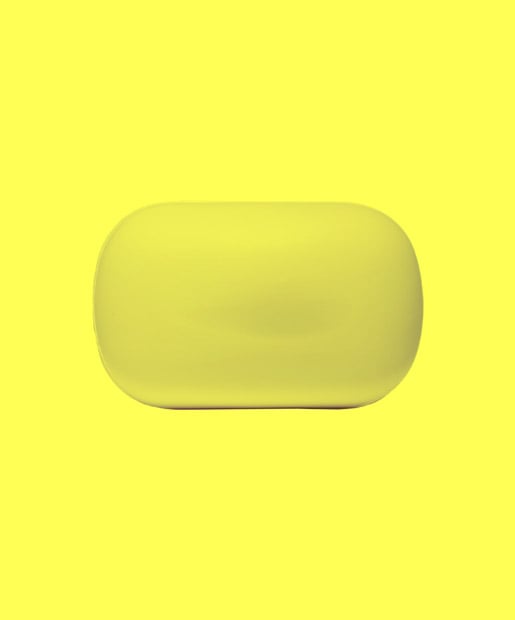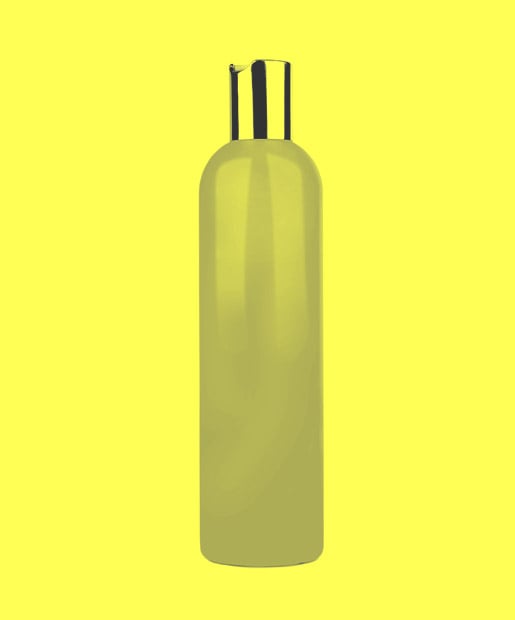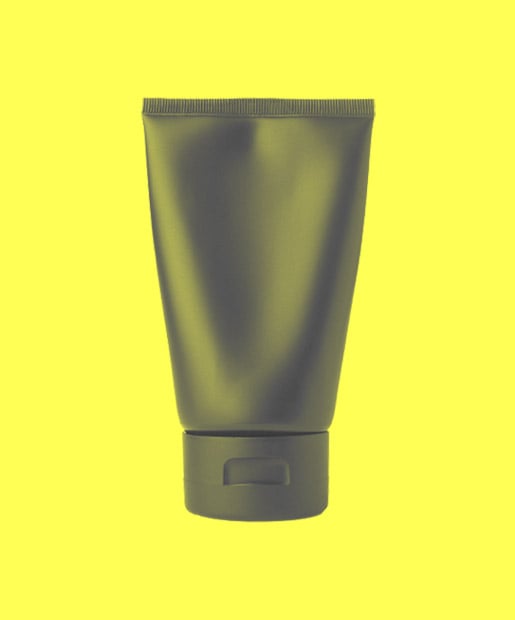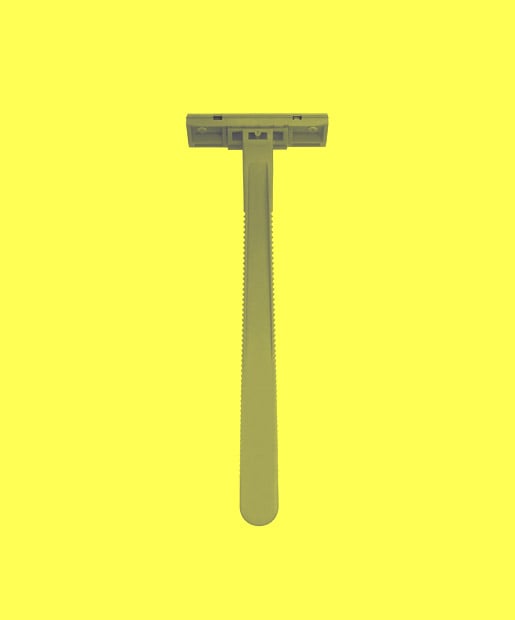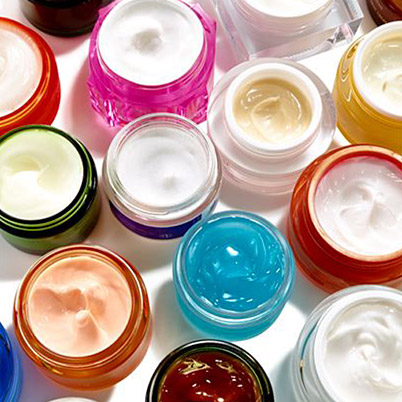How it's hurting: According to the American Academy of Dermatology, traditional soaps, antibacterial soaps and many perfumed soaps contain harsh ingredients that strip natural oils from the skin, leaving you with tight, scaly skin.
The fix: Martin recommends turning to non-soap hydrating cleansers over a true soap.
If you're sticking to the 10 minute time it's important to hit the key areas that need the most attention -- the pits, under breasts and between the legs -- but when it comes to intimate areas, steer clear of lather and fragranced body washes that can disrupt your body's natural balance of bacteria.
The fix: Martin recommends turning to non-soap hydrating cleansers over a true soap.
If you're sticking to the 10 minute time it's important to hit the key areas that need the most attention -- the pits, under breasts and between the legs -- but when it comes to intimate areas, steer clear of lather and fragranced body washes that can disrupt your body's natural balance of bacteria.
How it's hurting: Before you begin to lather up, you may want to think twice about your method of application -- loofahs can be too harsh on delicate skin, hands can't thoroughly get the job done and damp washcloths can be breeding grounds for mold, bacteria, or a mild infection of the follicle called folliculitis (especially when the follicle is exposed post-shaving).
The fix: Martin says your best bet is to invest in an exfoliating body buffer that gently exfoliates and dries quickly. Factor in a salt or sugar scrub twice a week to give your shower tools some downtime thoroughly dry and to avoid a constant state of dampness.
The fix: Martin says your best bet is to invest in an exfoliating body buffer that gently exfoliates and dries quickly. Factor in a salt or sugar scrub twice a week to give your shower tools some downtime thoroughly dry and to avoid a constant state of dampness.
How it's hurting: Just as soap can strip your skin of protective oils, shampoo can do the same thing to your delicate hair and scalp. If you find yourself drowning your hair in conditioner and it still feels like straw, it's time to scale back on how often you shampoo.
The fix: Unfortunately, scalps vary from person to person, so there isn't truly a one size fits all rule for shampooing, but Mitgang says the fewer shampoos the better ... as long as things aren't getting truly unsanitary. "For 'greaseballs' who tend to get greasy after a day or so, use a dry shampoo or dry texture spray to absorb oil and lift the root away from the scalp so you can shampoo every other day instead of daily. For those who wait a week, that's okay, as long as your scalp doesn't itch or smell. Twice a week is best."
The fix: Unfortunately, scalps vary from person to person, so there isn't truly a one size fits all rule for shampooing, but Mitgang says the fewer shampoos the better ... as long as things aren't getting truly unsanitary. "For 'greaseballs' who tend to get greasy after a day or so, use a dry shampoo or dry texture spray to absorb oil and lift the root away from the scalp so you can shampoo every other day instead of daily. For those who wait a week, that's okay, as long as your scalp doesn't itch or smell. Twice a week is best."
How it's hurting: If you're taking advantage of your giant steamer of a shower and washing your face under the showerhead instead of at the sink, you can pat yourself on the back. But if you're washing your face before you finish your hair, you're losing points: According to Martin, the runoff of products (not designed for your face) can clog open pores leading to unwanted breakouts along the hairline.
The fix: Do wash your face in the shower, especially if you're pimple-prone. Sebum, the oily mess that is the root of acne, liquefies in the shower. However, don't wash your face until you're completely through with shampooing, conditioning or deep conditioning hair and have done your final rinse down. Use a moisturizing, creamy cleanser formulated for your face -- don't even think about using body wash or soap on that delicate complexion.
The fix: Do wash your face in the shower, especially if you're pimple-prone. Sebum, the oily mess that is the root of acne, liquefies in the shower. However, don't wash your face until you're completely through with shampooing, conditioning or deep conditioning hair and have done your final rinse down. Use a moisturizing, creamy cleanser formulated for your face -- don't even think about using body wash or soap on that delicate complexion.
How it's hurting: If you're rushing your shaving routine (it's annoying, we get it), holding onto your razors too long or nonchalantly running them over your legs without prepping your skin first, you're setting yourself up for ingrown hairs, itchy skin and nicks galore.
The fix: The cardinal rule of shaving? "Always use a sharp razor," say Dawn Gardner-Kasper and Sara Sortino, the founders of DermGirls. That means replacing those blades after every five to seven shaves and never storing them in your shower where they stay wet and rust. "If you're prone to ingrown hair, use a single or double blade and shave with the hair growth." Also key: how well you prep your skin in the shower.
According to Gardner-Kasper and Sortino, exfoliating before shaving helps release any ingrown hairs that may be trapped under dead skin, allowing your razor to cut further down the hair shaft for a closer shave. To help lock in moisture, use a moisturizing shaving cream in lieu of a body cleanser, and simply rinse your skin with warm water. And while we all live on different shave schedules, according to the DermGirls, the best time to shave is at night. While you sleep, growth hormones are hard at work regenerating and multiplying cells to compensate for the ones you damaged by running a sharp blade over them multiple times.
The fix: The cardinal rule of shaving? "Always use a sharp razor," say Dawn Gardner-Kasper and Sara Sortino, the founders of DermGirls. That means replacing those blades after every five to seven shaves and never storing them in your shower where they stay wet and rust. "If you're prone to ingrown hair, use a single or double blade and shave with the hair growth." Also key: how well you prep your skin in the shower.
According to Gardner-Kasper and Sortino, exfoliating before shaving helps release any ingrown hairs that may be trapped under dead skin, allowing your razor to cut further down the hair shaft for a closer shave. To help lock in moisture, use a moisturizing shaving cream in lieu of a body cleanser, and simply rinse your skin with warm water. And while we all live on different shave schedules, according to the DermGirls, the best time to shave is at night. While you sleep, growth hormones are hard at work regenerating and multiplying cells to compensate for the ones you damaged by running a sharp blade over them multiple times.



